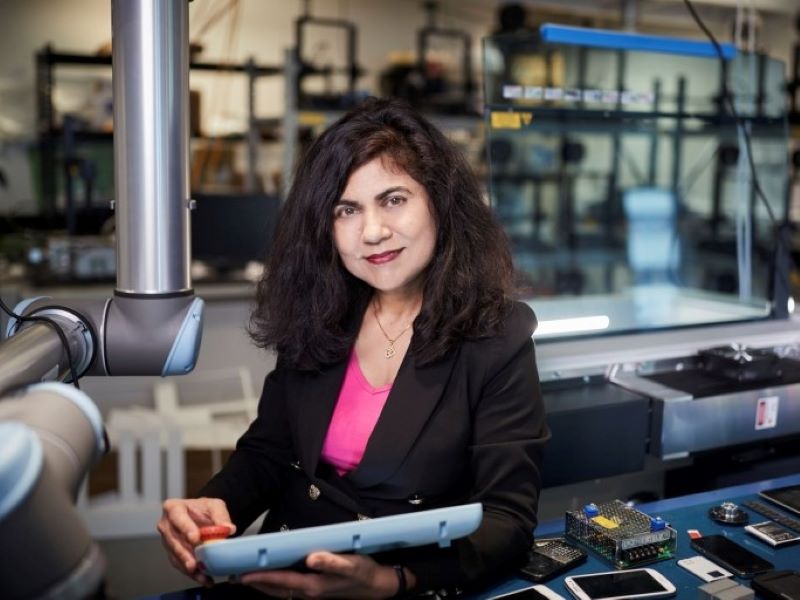Efforts to turn seawater into hydrogen and make ceramics from textile waste are being backed by a recycling focused university ‘Trailblazer’ that unveiled its first research projects in Sydney this week.
The UNSW and University of Newcastle Trailblazer for Recycling and Clean Energy (TRaCE) showcased the initial projects that form part of a national push to commercialise university research in strategic areas under a more collaborative approach.
The universities received $50 million in federal funding in 2022 under the Trailblazer program that was developed after a review of the research commercialisation system exposed a “valley of death” for local innovation.

UNSW and Newcastle are contributing their own funding and in-kind contributions, while industry partners will take the total commitments to $280 million for TRaCE.
As five other Trailblazers around the country focus on areas like Defence and resources, TRaCE is looking for solutions to decarbonise while creating new jobs and industries.
A showcase event in Sydney this week was launched by Assistant Minister for Education, Anthony Chisholm.
“TRaCE’s projects will help Australia and the world find new and effective ways to transition to sustainable recycling and clean energy solutions and systems,” Mr Chisholm said
Early projects onclude award winning researcher Professor Veena Sahajwalla’s work to create sustainable bio-composites from waste textiles and mattresses.
The ‘green ceramics’ are being developed with industry partner Kandui Technologies and offer alternatives to cut stone in kitchen benches and construction products.
Professor Sahajwalla pioneered MICROfactorie waste-to-product technology in Australia and the TRaCE support will attempt to scale it further and add new products.
The Trailblazer is also backing further research into processes for producing hydrogen from seawater, a potential sustainable resource for commercially viable renewable hydrogen generation.
UNSW researchers will team with Vecor Technologies in dedicated facilities to develop novel catalytic materials for seawater splitting that avoids creating dangerous byproducts and conditions.
The University of Newcastle and Kardinia Energy are teaming with support from TRaCE to build the world’s first printed solar manufacturing facility.
Printed solar uses carbon-based semi-conducting polymers printed on recyclable PET plastic, offering a potentially more sustainable and scalable panel production.
“770 million people don’t have access to electricity, and three billion people don’t have access to clean cooking fuels. The scalability and economic viability of printed solar manufacturing will help us tackle this issue,” Kardinia Energy chief executive Anthony Letmon said.
TRaCE includes $117 million in industry co-funded R&D projects in its first year, according to UNSW.
The Trailblazer initiative is also attempting to improve commercialisation with more open intellectual property agreements, incentives for researchers that engage industry and connections with the VET sector.
The UNSW and Newcastle Trailblazer said it will deploy around $67 million to the additional areas.
“TRaCE’s mandate is to transform how universities work with industry to translate research into commercially viable products, in addition to building the skilled workforce required,” said TRaCE executive director Emmanuel Mastio.
“We are extremely focused and will deploy our resources around core technologies promising the highest greenhouse gas emissions avoidance. This means treating technologies as ecosystems and strategically co-funding companies to build a critical mass in supply chains.”
Do you know more? Contact James Riley via Email.

